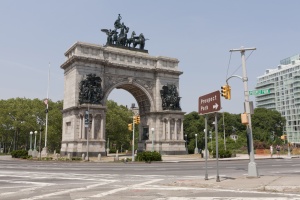From proposed legislation to increase the amount of jail timepossible for those who murder young children to creating SafeHavens for children at businesses throughout the city, New Yorkershave spent the three weeks following eight-year-old Leiby Kletzky’smurder trying to protect all of the children that we still have inour lives.
Included in these conversations is a renewed desire to lift theban on cell phones in public schools. Since 1988, the Department ofEducation (DOE) has followed a chancellor’s regulation thatprohibits all electronic equipment in schools; the regulation wasreinforced in 2006 by then-chancellor Joel Klein to include cellphones.
Then, as in now, that addition has met with much consternationfrom many parents and elected officials.
For Mayor [Michael] Bloomberg to go on his radio station on theFriday after little Leiby’s brutal murder, to say that best way forparents to keep in touch with children is through cell phones, yethe [continues to uphold] the ban, how can he say that, asked MonaDavids, president of the recently formed NYC Parents Union andparent to an eighth grader. For the safety of our kids, we needthat ban lifted.
Brooklyn Councilmember Lew Fidler, himself a father of two,agrees. He points outs that the City Council passed a lawoverriding Bloomberg’s veto [against possession of a cell phone toand from school], but the DOE is not honoring that law in fact orin spirit.
I would urge the DOE to [enforce] a series of regulations thatsays if we see you using it, there are [specific] consequences,Fidler said, likening such actions to going to the movies, where weretrain people to have their cell phones off before the moviestarts. Cells are here to stay, they’re part of technology, and weought to consider it a part of proper education for young people tolearn what the right and wrong rules for cell phones are.
In middle and high schools throughout District 20 in Bay Ridgeand Dyker Heights, the cell phone ban typically results in phonesbeing shut off or silenced at the front door, or confiscated byschool officials pending last period dismissals.
This policy of confiscation based solely on possession of a cellphone – as opposed to abuse of one – was the subject of a CommunityEducation Council 20 resolution in May 2006, shortly after theDOE’s passage of the cell phone ban.
This ban started a few years back and it’s really on the juniorhigh and high school level that the cell phone becomes veryimportant because you might not be going to your zoned school,said mom and CEC 20 President Laurie Windsor. You’re traveling allover the city, taking the trains and buses… you never hearrumblings on the elementary level… All along, parents in thedistrict believe kids should be allowed to have cell phones.
According to a DOE spokesperson, there are no immediate plans torevisit the chancellor’s regulation.
For Davids, though, there is still a chance for parents andeducators to work together to keep kids safe while also maintainingorder in the classroom. That is why the NYC Parents Union will belaunching a campaign and online petition in September to applypressure for a lift of the ban and an increase incollaboration.
As parents, we want to work together with the mayor to puttogether a Cell Phone User Agreement that parents have to sign,said Davids. If we want to lift the ban, we need to be responsibleas parents. We believe that it takes two to work this out.
Councilmembers Vincent Gentile and Fidler agree. There isnothing more important than our children and their safety, saidGentile. Cell phones may be a distraction in the classroom;however, outside of school they can be a critical lifeline betweenparents and their children.
 Generally Speaking: Bay Ridge resident named Brooklyn surrogate, Memorial Day Parade-ers honored
Generally Speaking: Bay Ridge resident named Brooklyn surrogate, Memorial Day Parade-ers honored  Captain America celebrates 75th birthday with statue in Prospect Park
Captain America celebrates 75th birthday with statue in Prospect Park